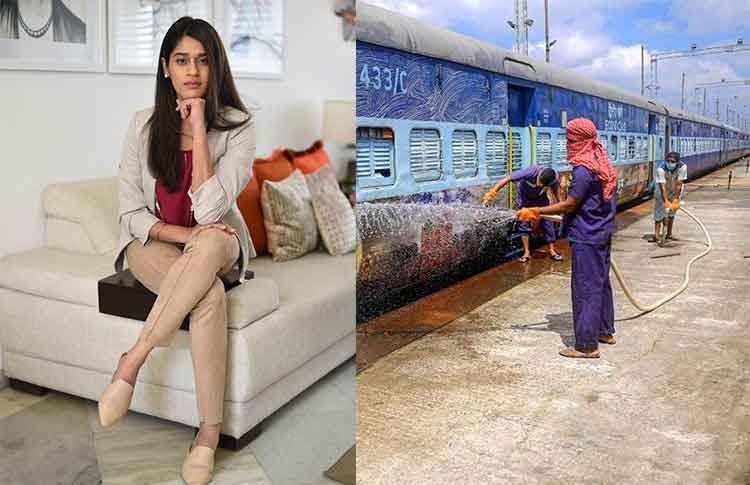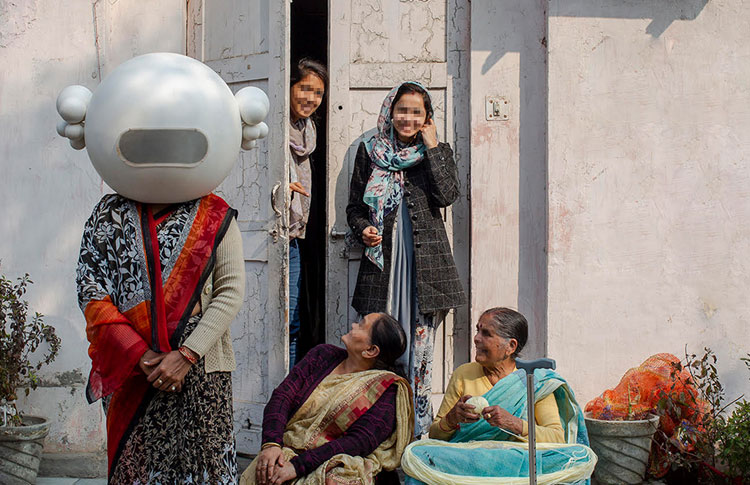On World Autism Day, Meet The Mother-Daughter Duo That Is Making A Difference In The Lives Of Many
- IWB Post
- April 2, 2019

For mother-daughter duo Neeta and Aashnee Gajaria, the step towards providing health care facilities to people fighting rare diseases such as cerebral palsy, muscular dystrophy, and autism started when they read an article about a family in Dhaka, where a father was pleading with the Bangladeshi government to allow mercy killing of his three children who suffered from a crippling disease – muscular dystrophy. Due to a lack of funds, he could not get them treated.
Concerned about their well being and simultaneously finding statistics about neurological disorders found in children, Neeta and Aashnee sought to create value in their lives by partnering with a top Indian neurosurgeon who’s a pioneer in autologous stem cell therapy and neuro rehabilitation.
As a result, Meditourz was born in 2017- a medical tourism company that aims at providing medical treatments to patients suffering from rare diseases by helping them travel from one country to another, offering safe and affordable medical treatments.
What makes their story unique is that despite the lack of formal training in the field of medicine, nothing stopped Neeta and Aashnee from making a difference in the lives of people struggling with rare diseases. The mother-daughter duo’s initiative, which has already touched the lives of more than 1000 people since its inception, not only helps them with medical treatments, but it also aims at creating awareness amongst patients suffering from incurable neurological conditions to let them know that even if there is no complete cure to their problems, solutions exist which promise a better life.
In conversation with us, Aashnee talks about how she quit her dream job, the mother-daughter bonding, and how our county is matching the medical standards of the west.
Excerpts:
Tell us about your journey, from the time you heard about the suffering of the Dhaka family to forming a company which now caters to the medical needs of underprivileged and privileged families.
A lot of countries do not have the state of art medical facilities, doctors or treatments like India does. Even if they do they are unaffordable. That’s when my mum and I decided to start Meditourz- a medical tourism company specialising in regenerative treatments and therapies two years ago. We were shocked to hear that a father could actually ask the government of his country for mercy killing for his own children as he did not have funds to treat them any further. It was disheartening to hear something like this. That’s when we decided that our main motive would be to help create awareness amongst patients, promote the medical facilities available in our country and make a difference in the lives of patients by connecting them to the right doctor.
Since our inception, we have held more than 15 conferences in the Gulf, Asia, and South East Asia and have made a difference in the lives of more than 1000 patients. These conferences are absolutely free for the parents and are a form of creating as much awareness as possible.
As you both quit your jobs to form this company, tell me about the challenges that you faced being women entrepreneurs, practically having no experience in the field of medicine.
My mum was a visa support officer with the British Embassy in Mumbai and worked for the organisation for over 14 years, and I was a part of a famous Advertising MNC DDB Mudra Group, where I handled various communication campaigns for big brands in India and globally. But my mum always wanted to work in the space or field where she could make a difference in lives of children and I was on board with that as she wanted to do something which had a deeper meaning or purpose. So we both started of Meditourz with the Dhaka case and then built the foundation of the organisation one brick at a time.
It was challenging for us in the beginning, as the medical field needs you not only to have knowledge of the services one is offering but also needs you to be caring and compassionate. You actually need to put yourself in the shoes of the sufferer and understand what they are going through. Not only that, dealing with diverse cultures also makes you more empathetic and you understand their emotions and sentiments.
Many times individuals are wary about taking medical treatments outside their home country. It is therefore very important to assure them that the treatment provided to them is not only of high standard, it is also safe. The whole process involves a genuine team of dedicated doctors with a good offering that ensures that their pre and post care are more or less hassle-free. All in all, it’s a hard package to sell.
By working together on this venture, what did you both learn from each other and how do you complement each other’s strengths?
This venture has literally opened my eyes wide. Earlier I always took my mum for granted, but I now understand her better than before and it has made my bond with her stronger. This has only been possible because I meet these parents with such vulnerable kids who are all the time trying to do the best for their child. A mother’s unconditional love only wants the best for her child.
It could be eating the right food, getting the right education, keeping wide awake till her child returns home safely from late nights or for that matter use of social media to let the whole world know about their whereabouts. All this is because sometimes we get into trouble doing wrong things or overdo it. Like we know how blue rays emitted from electronic devices are bad. The same way junk food can lead to an underdeveloped brain. Only a mother would be able to guide us. But having said that, my mum also gives me space and independence which she thinks is very important and necessary for a healthy relationship.
Seeing special children, both my mum and I exercise gratitude every day and value being healthy human beings. I value and appreciate my parents who care for me and prepare me for the harsh realities of life. Special need families and children go through a lot of stress and pressure which is very emotionally draining for them and family support is the best gift any child or parent can get.
In the process, I have also learnt that my mum is very calm and composed in handling situations and people. She is a complete people’s person and empathises with their problems. She puts them at ease by sharing valuable insights which she thinks could be of help. On the other hand, I am super determined, once I put my mind to something I ensure it happens some way or the other. I focus on the drive and energy. In this way, we both balance each other, maintaining the calm and the chaos.
How do you manage the process of arranging funds to treat underprivileged patients?
We try to ensure that our tie-ups and connections are solid and the cases we take up are genuine. We make sure that everything falls into place and there are also a lot of people out there who are ready to help such cases and want to make a difference.
Our social profile team ensures that if some patients cannot afford the treatment we do our best to do whatever we can in our capacity to treat them at minimal costs and get the rest through donations, funding through the right connections. We actually bridge the gap by serving the deserving.
What healthcare provisions would you like to see in the upcoming health budget for the patients suffering from autism, muscular dystrophy, and cerebral palsy?
I would say people need to start accepting that these problems exist and the government should help in creating awareness first. It’s just been in recent years that people are being more open to LGBTQ community and mental illnesses. I am aware that the central government has a “Pradhan Mantri Yojana“ where people with disabilities are given financial relief for treatments in government hospitals, which is a great initiative.
Have you experienced cases of medical sexism where women patients have found it more challenging to undertake treatment as compared to men?
No, not at all. But my mum has met many mothers where their husbands have disowned their wives and special kids blaming the women for bearing such a child.
Do you think our national healthcare facilities are failing to help patients with autism?
I do not think it is failing. I feel India is being as progressive as any other country. We are matching the treatments that the west is offering and are rather offering better treatments. But that being said these treatments are new age and expensive and it will take time for the government to incorporate that in municipal hospitals.
What’s the next step for the company now?
The world is our oyster. We want to ensure we create awareness for regenerative treatments and therapies in different parts of the world and in different fields by reaching out to as many people as possible to make a difference.
- 0
- 0












